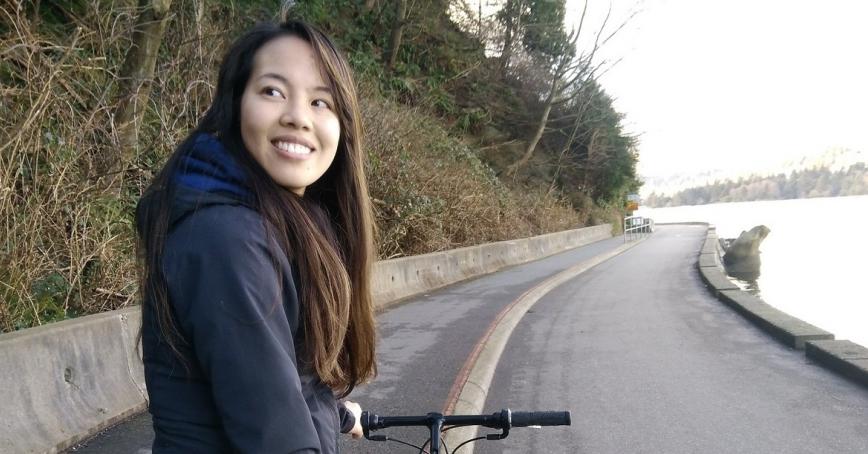Royal Roads grad connecting Indigenous peoples in Canada and Hawaii
Topics
Featured
Share online

What is the connection between Vietnam and Canada, landlocked Alberta and the Hawaiian Islands, the many First Nations of North America and the Māori of New Zealand?
The long answer is that all these places and peoples are connected — we’re all connected — by the Earth’s oceans and its atmosphere, by our shared need for clean air, clean water and enough food to eat.
The short answer — for the purpose of this article, at least — is Vivian Giang.
Giang is an Edmonton native and resident, and a graduate of Royal Roads University’s Master of Arts in Professional Communication program. Currently a PhD student in anthropology and engineering at the University of Alberta, she received a Fulbright Canada Award to visit the University of Hawai'i at Mānoa from December of this year until next August; after that, the SSHRC Canada Graduate Scholar will do an additional, short-term exchange at the University of Auckland thanks to The Canada Graduate Scholarships Michael Smith Foreign Study Supplement.
With a nod to her RRU education, she’s focusing her doctoral research in Honolulu and Aotearoa New Zealand on community engagement processes and communication frameworks around geothermal energy development, especially with respect to Indigenous rights and considering the UN’s Declaration on the Rights of Indigenous Peoples (UNDRIP).
“We know that geothermal is quite new in Canada so it’s extremely important to look at other international jurisdictions that have geothermal energy, especially where it’s been done in Indigenous communities,” Giang says.
Aotearoa New Zealand is one example, she says, noting Māori communities have had decades worth of experience with the development of geothermal, having reached agreements with industry proponents. In Hawaii, however, the development of the alternate energy source was “conflict-ridden and a bit rockier,” with more opposition.
“When applying for the Fulbright, I thought it would be of extreme value for Indigenous communities in Canada to, perhaps, have nation-to-nation relationships and build knowledge together with other communities that have geothermal energy on their lands,” Giang says.
Even with UNDRIP in place — including its requirement for “free, prior and informed consent” of Indigenous people for actions affecting their lands — consultations with Indigenous communities vary widely around the world, she says.
“Hopefully, by learning about the Hawaiian experience with geothermal and creating linkages between nations, we can try to create a more inclusive consultation process that will allow more Indigenous voices to be included and at the table.”
Free, prior and informed consent requires a community where geothermal energy development is being proposed to understand both risks — such as the potential for increased seismic activity and the release of noxious gases — and benefits. “We’re not trying to convince a community to do it or not do it but informing them of the risks so they can make the decision for themselves,” she says.
Walking the talk, Giang is conducting her research in partnership with Alexis Nakota Sioux Nation in Alberta while pursuing her interdisciplinary doctoral studies through the Future Energy Systems research initiative at the Univeristy of Alberta, where she works as a communications and grant strategist as well as an event coordinator. She’s also an instructor at MacEwan University in Edmonton, where she earned her undergrad degree, and she serves as president of the United Nations Association in the Canada–Edmonton branch.
That partnership is essential because development of geothermal energy projects can affect traditional land-based activities and water use in an Indigenous community. “The water and land is spirit,” Charlie Letendre, Nakota Knowledge Keeper, says in an email. “Without spirit, there is no soul, without soul, there is no life and hope dies. The wind and fire will blow away existence. Take care of it and the forest will sing again.”
As well, Giang’s educational background, especially her time at RRU, is a big part of the next steps in her journey.
“My time as a master’s student at Royal Roads provided an excellent opportunity to explore deeper questions about why and how we can communicate with others to make an impact,” she says. “I especially appreciate the instructors and peers in my cohort who exposed me to diverse perspectives and experiences that enriched my studies and life.”